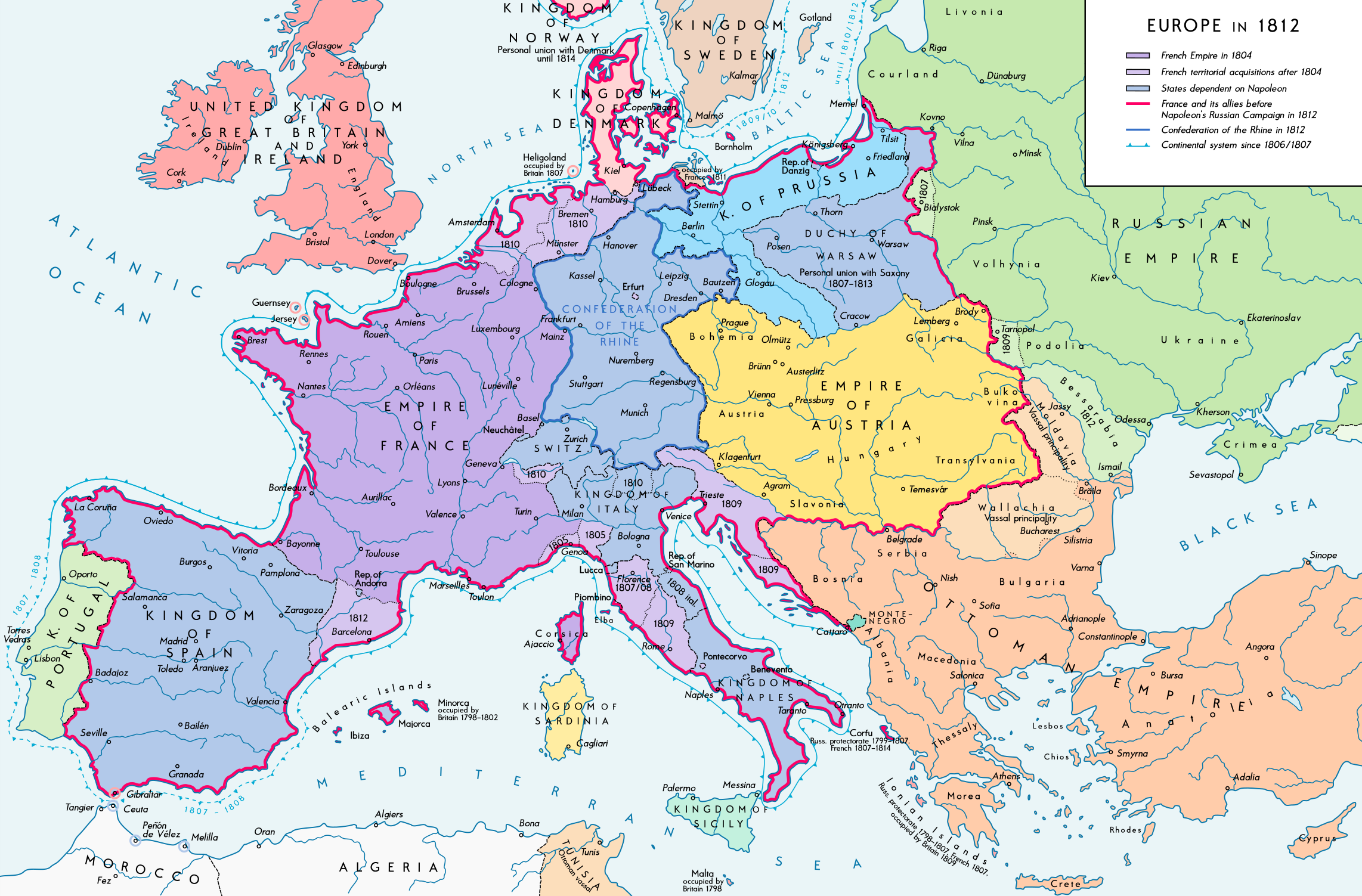As late as 1792 Catherine the Great predicted that ten thousand soldiers would suffice to douse the “abominable bonfire” in France.
The war that broke out in the spring of 1792 soon destroyed such illusions. Almost all the European powers eventually participated, and the fighting ranged far beyond Europe. By the time the war was a year old, Austria and Prussia had been joined by Holland, Spain, and Great Britain. By 1794 the French had definitely gained the advantage, and in 1795 French troops occupied Belgium, Holland, and the Rhineland.
One reason for French success was the Convention’s energetic mobilization of national resources, which enabled France to have the unprecedented total of a million men under arms by the spring of 1794. Another reason lay in the weakness of the first coalition, which lacked a first-rate commander. Moreover, the partitions of Poland in 1793 and 1795 greatly assisted the French because they kept Russia out of the war and greatly distracted Austria and Prussia. By 1795 mutual mistrust had reached the point where the Prussians dared not attack the French for fear of being attacked themselves by their nominal allies, the Austrians.
Prussia was the first member of the coalition to make peace. In the Treaty of Basel (1795), Prussia yielded to France the scattered Hohenzollern holdings west of the Rhine. Spain, which ceded to France the western part of the island of Santo Domingo (today the Dominican Republic), soon deserted the coalition, as did the Netherlands.
Besides Belgium and the Rhineland, France had also annexed Savoy and Nice, thereby extending its southeastern border to the crest of the Alps. These conquests, however, belied the ideals of the Revolution. In declaring war on Austria in 1792, France had sworn to uphold a promise of the constitution of 1791: never to undertake a war of conquest. This was to be “not a war of nation against nation, but the righteous defense of a free people against the unjust aggression of a king.”
But the conquering armies of the First Republic brought closer the day when nation would fight nation—when the other European nations would invoke “the righteous defense of a free people against the unjust aggression,” not of a king, but of revolutionary France.

